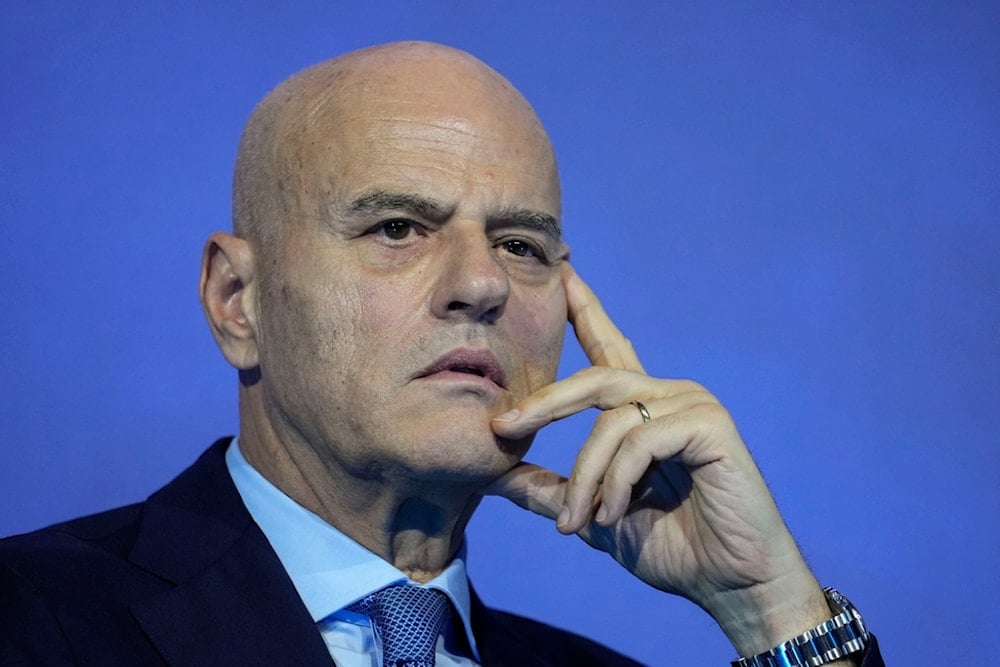Italian Eni CEO says Europe still has no energy security plan
Eni CEO Claudio Descalzi warns that Europe lacks a credible energy security plan, urging a sustainable and profitable transition to renewable power.
-

Eni CEO Claudio De Scalzi attends a Forza Italia party convention, in Milan, Italy, Saturday, May 6, 2023 (AP)
Europe continues to lack a coherent energy security strategy or a unified energy market, Claudio Descalzi, CEO of Italian oil and gas giant Eni, said on Wednesday.
Speaking at a forum hosted by the Coldiretti agricultural producers’ association in Rome, Descalzi criticized the European Union for failing to develop a credible approach to energy security despite growing focus on sustainability and the energy transition.
“Europe still lacks an energy security plan,” Descalzi stated, noting that the continent’s vulnerability was exposed only recently, when disruptions in fuel supplies revealed “the fragility of the system.”
The Eni chief stressed that while major global powers such as the United States, Russia, and China have long-established policies to secure gas, oil, and critical mineral supplies, Europe remains “overdue” in creating similar safeguards.
Descalzi reaffirmed that the transition to renewable energy remains a vital objective, as it would enhance long-term resilience and independence. However, he warned that the shift cannot be driven by subsidies alone. “The system must rely on solid economic foundations and generate real profits in order to be sustainable in the long term,” he said.
France, Germany urge sanctions on Russian oil
France and Germany called in September on the European Union to add major Russian oil firms to the bloc's upcoming sanctions list, according to documents it reviewed.
"Additional steps should be considered, in particular listing oil majors such as Lukoil or Litasco, in order to put maximum pressure on Moscow's capacity to export its oil," the joint proposal from Paris and Berlin stated.
The measures are under discussion as part of the EU's 19th sanctions package, which also targets Russian banks and the country's energy trade. Both governments declined to comment when contacted by Bloomberg.
Approval from all 27 EU states is required for new sanctions to move forward. Past efforts to penalize Russia's energy industry have met resistance from several countries, including Hungary.
The draft package also looks to tighten restrictions on Russia's "shadow fleet" of vessels used to transport oil, as well as on intermediaries in third countries who facilitate the trade. EU officials are in Washington this week to coordinate potential joint steps with US counterparts.
Sanctions pressure plateau
Germany and France also urged Brussels to crack down on financial and logistical networks that allow Russia to evade restrictions. Some EU capitals want to expand measures to civilian firms that indirectly support Russia's defense sector.
Yet the push for tighter sanctions comes as the bloc continues to manage the fallout from earlier rounds. EU governments have committed more than €540 billion to shield households and businesses from surging energy bills, while euro-area inflation peaked at 10.6% in late 2022 before easing.
Russia's share of EU pipeline gas imports has fallen from nearly 50% in 2021 to around 12% in 2025, but the shift has left Europe more reliant on costly LNG, with the United States now supplying over half of EU imports.
Energy-intensive industries, particularly in Germany, saw sharp contractions; gas-dependent sectors fell about 20% below pre-war levels at the height of the crisis.

 3 Min Read
3 Min Read










